Izumi Ogino is a groundbreaker. She started her fashion brand in 1993 and, after only 5 years, was the first Japanese woman to join the Milan Collections in 1998. From being a housewife in her 20s, she broke out as a fashion designer making her debut in her late 30s. She had no experience in the world of fashion, no experience in design or in running a business when she began — she just figured it out as she went.
It is often assumed that as we age we become set in our way, becoming ever more closed to new cultures and ideas. There are surely those people out in the world, but Izumi is not one of them. Openness and adaptability are hallmarks of her life, from her move to Hong Kong from Japan in her 20s, then Italy working in fashion, to now being enthusiastic about new communication platforms such as Clubhouse. Her profound interest in the arts’ ideas and expressions across national boundaries is another facet of this lifelong curiosity and drive to understand and learn. For her the question is not why, but why not? The past is useful as a milestone, but the present and the future are what is exciting.
You have been called fearless in your creation of the fashion brand Anteprima when you were in your late 30s. As you work on new projects, now that you have much more experience, would you still describe yourself as fearless?
I would rather call myself “optimistic,” yet I still think it is important to take action first whenever the idea or new project comes to mind.
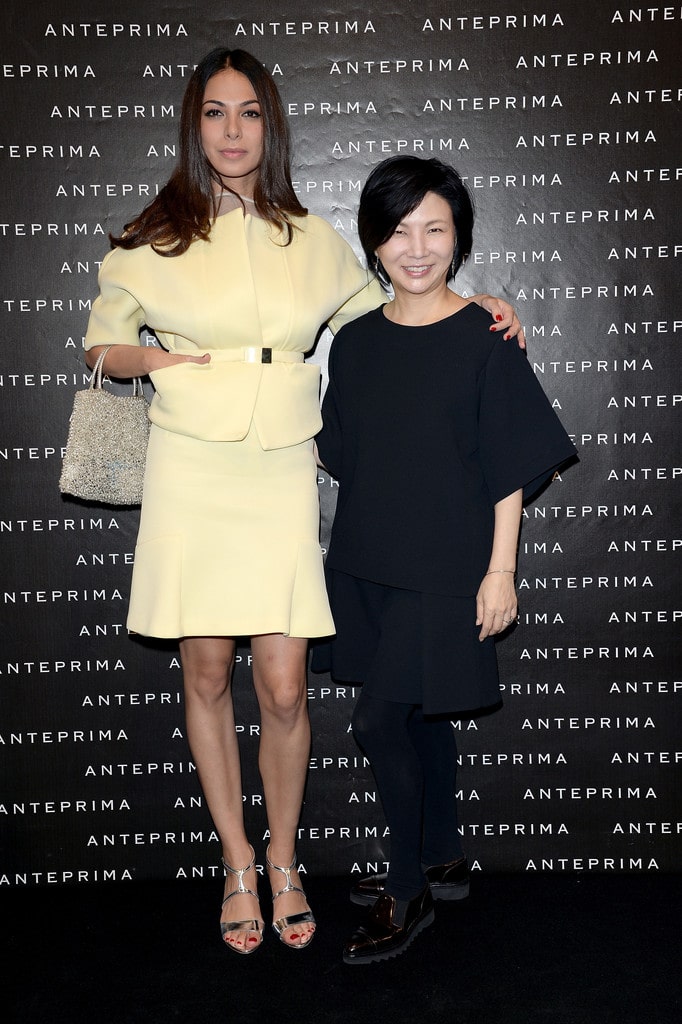
You have worked in a number of cultures around the world, HK, Japan, and Italy. How do you adapt to these cultures while holding your own culture close to you?
“When in Rome, do as the Romans do” is my motto. I have embraced and enjoyed every culture I had experienced. And no matter where I was, my roots and fundamental part of being Japanese comes out naturally and easily to adjust.
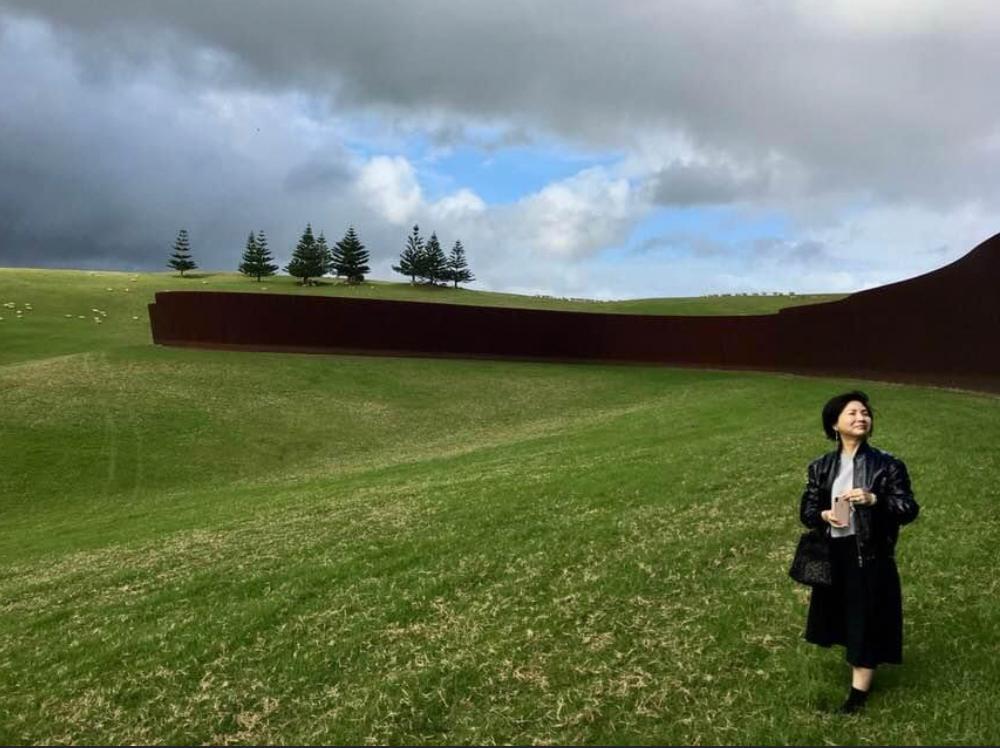
When you were around 50, there were some changes you made in the running and designing responsibilities at the company, delegating some of the design to new designers, and then you came back as director. What did you learn from that time?
A few years ago, I tried to hand over the responsibility to a young, talented person, but we failed as this position requires knowledge in multiple categories such as bags, shoes, clothes, knits. Unfortunately, this young person only had limited experience and it was not feasible to direct all of the categories with clear direction. The production team and buyer couldn’t put trust in it. In order to pass this responsibility, we need agreement and support from all the teams which involve PR, marketing, factory production, and sales.
“A few years ago, I tried to hand over the responsibility to a young, talented person, but we failed as this position requires knowledge in multiple categories”
With the current system in our company, the purchase of the products (which will be available on actual retail) is decided based on the regional buyer who puts higher weight on their customer’s trends and our past best sellers. Therefore it requires enormous financial investment to make a major re-modeling if we change the creative director.
Creating a brand identity is a real challenge. Anteprima’s Wirebag has a unique and iconic characteristic: “it can be understood and recognized even from a distance.” And there is an interesting contrast with the primitive method of knitting with futuristic materials. I believe this fundamental direction wouldn’t change and “contrast lifestyle” is what Anteprima keeps aiming for in the future. I still want to hand over my responsibility to the next generations.
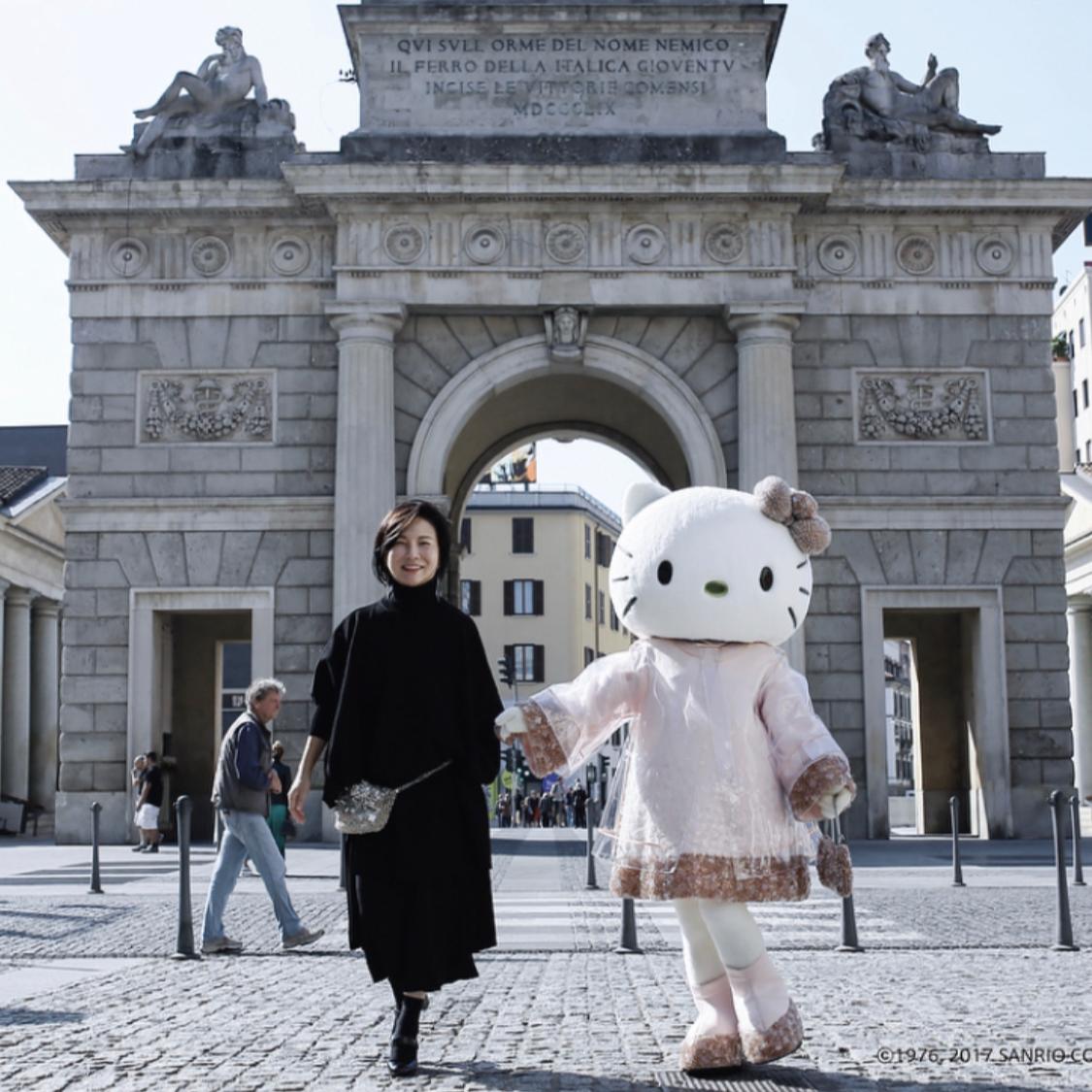
Anteprima was about a certain global sense of sophisticated and cool. You are now working on a hotel project in Kyoto. How would you contrast the two points of view? What are your responsibilities at the hotel project?
Sorry! I sent you a misleading photo of Kyoto. My best friend, Miwako Fujimoto, Gora Kadan, has been one of my best friends for long time.
The time when I entered the world of fashion coincides with the time when she launched her hotel.
Funny thing is that she is fluent in Italian and loves fashion; I like architecture, kimono, hot springs and golf. We became each other’s advisors.
She is currently involving the new Odawara project; two new special rooms have been created for Gora Kadan. I am planning to go visit the hotel again in early April and report back to her as best-friend advisor!
“We Japanese are blessed and value the harmony in nature and relationship”
On our last visit to Japan, we were inspired by the vast range of harmonious intergenerational work interactions. Please help us to understand how that works in Japan.
The most fundamental Japanese value, Wa (harmony), and its implications for all the work ethics in Japan. What I learned from my mother is “Don’t be angry. Don’t forget to thank, listening to people’s stories. Don’t be ashamed to apologize.”
A heart that values the four seasons and loves cherry blossoms, we Japanese are blessed and value the harmony in nature and relationship.
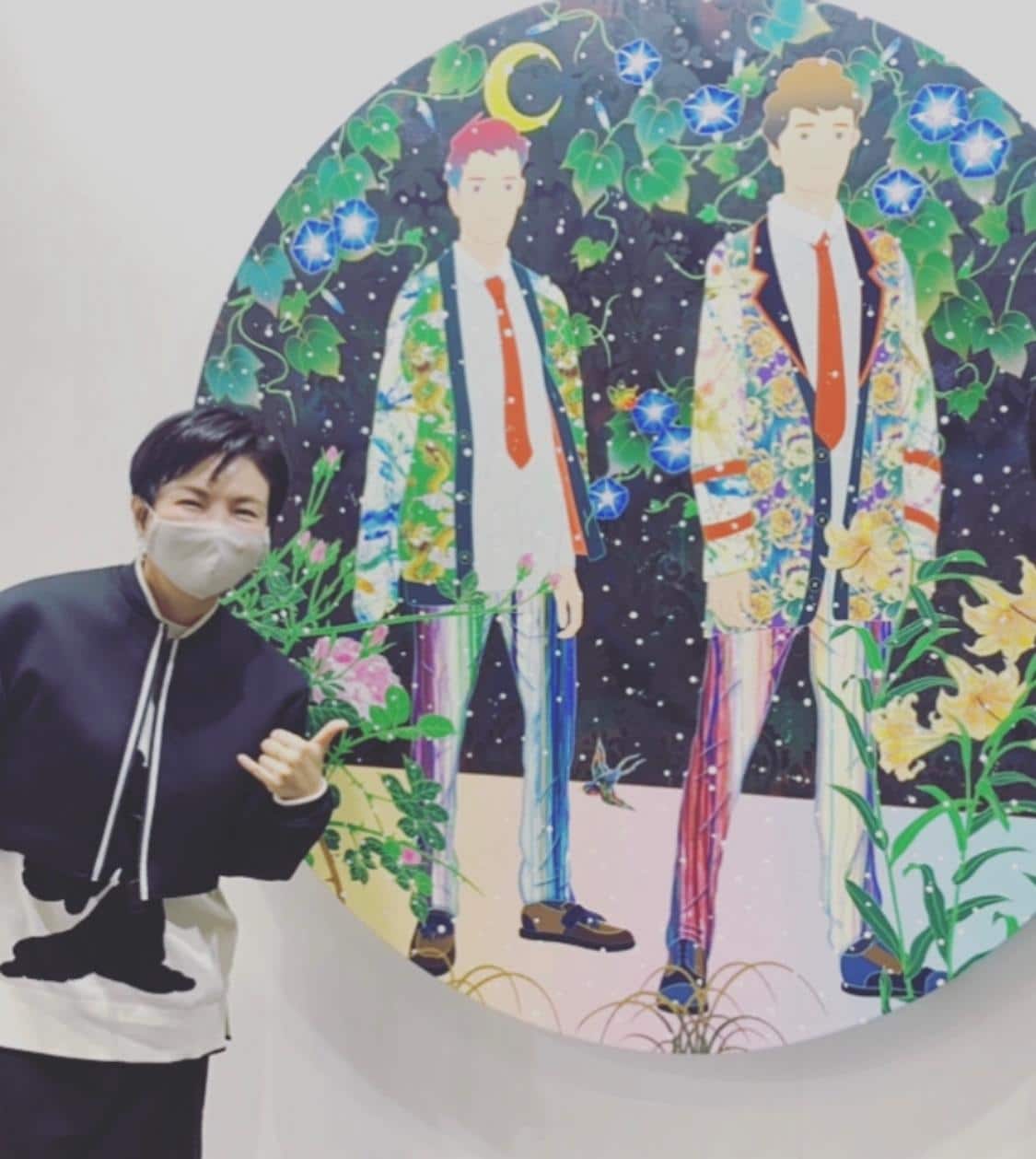
During Covid it has been very difficult to travel, and travel was one of your big inspirations. How do you now find your inspiration and feed your vision?
What I get from traveling is gaining new inspiration for your eyesight, experiencing culture, and the very important value of meeting new people and making new connections.
As Japanese saying “you can make a ring by throwing a stone in the pond,” with or without travel I believe it is important to always meet new people so that the ripples will spread. You can also have a stronger relationship with people you already know.
Without travel, I still use my head and eyes to have these inspirations. I went on a gallery tour the other day with the Tokyo Art Fair. I’m a member of Mori Art Friends and a member of Pompidou. In Hong Kong, I am supporting M + (M plus museum in Hong Kong), which is scheduled to open in September.
Mentoring Fashion Designers and Artists
You have been a passionate mentor for your fashion designers. What is your process for mentoring? How do you select the people? What is it that you learn from your mentees?
I choose artists and not only fashion designers, but wider range of art as well. I did a collaboration with a young illustrator and a musician in recent projects. I choose the potential artist when I kick off the new collection, and then find inspirational elements from the collection theme that will suit the artist’s talent.
I always learn and appreciate the passion and energy from young talent learning what is happening now and what will be about to happen, from a younger perspective.
Staying Fit and Inspired
You are a big reader of books. What are you reading now that you could recommend?
陰翳礼賛 (In Praise of Shadows) by Jyunichiro Tanizaki. This eloquent work on the Japanese sense of beauty explores the subtle interplay of shade and light in several important aspects of Japanese life ― architecture, drama, food, femininity, and literature ― and traces the retreat of this mature, shadowy aesthetic tradition before the brighter, more garish products of Western technology.
What do you do to stay fit and healthy?
- Monthly blood test to know my body condition
- Recently started the supplement NMN
- Acupuncture and stretching twice a week
- It is important to enjoy walking to see nature (i.e. cherry blossoms)
What is inspiring you in this time of great global change?
Because we are at such difficult times, I would rather spend my time in a positive vibe; reading books and visiting museums to get inspiration.
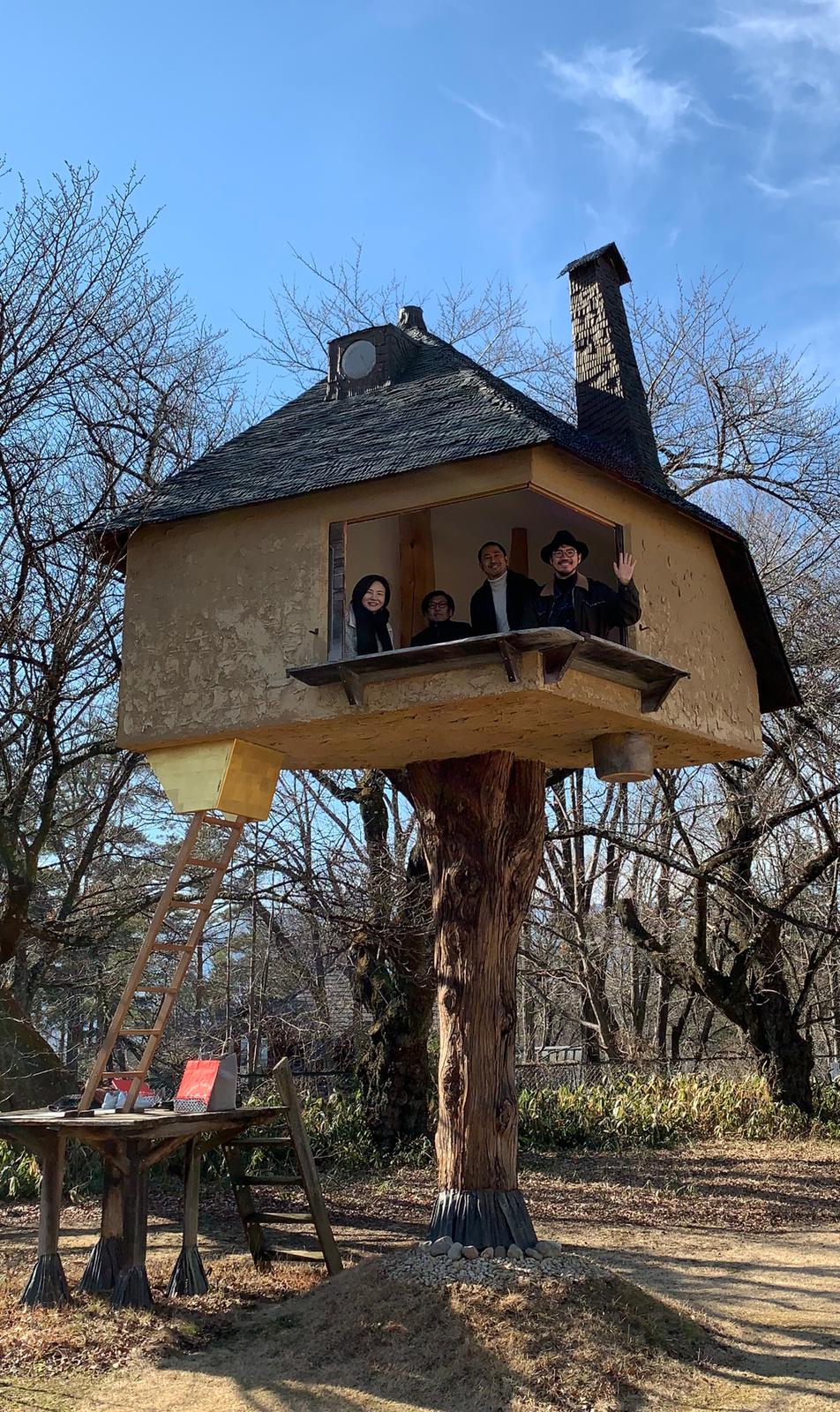
What are your most used apps on your phone?
The Clubhouse app. It is a good app for a nighttime when you trying to go sleep or while driving, to listen to or learn new things. I haven’t actively being speaker but it would be something to look for in the future.
What is your favorite ramen? Tonkotsu, Shio or Shoyu?
To be honest, I don’t like ramen. Rarely eat them. Prefer simple Japanese foods, and the steam method of cooking for Chinese foods.
What is your favorite way to relax?
I play with my dog, taking a walk; it is the wonderful Sakura (cherry blossom) season this week.
LEAVE A REPLY
The ideas expressed here are solely the opinions of the author and are not researched or verified by AGEIST LLC, or anyone associated with AGEIST LLC. This material should not be construed as medical advice or recommendation, it is for informational use only. We encourage all readers to discuss with your qualified practitioners the relevance of the application of any of these ideas to your life. The recommendations contained herein are not intended to diagnose, treat, cure or prevent any disease. You should always consult your physician or other qualified health provider before starting any new treatment or stopping any treatment that has been prescribed for you by your physician or other qualified health provider. Please call your doctor or 911 immediately if you think you may have a medical or psychiatric emergency.
AUTHOR

We will never sell or give your email to others. Get special info on Diet, Exercise, Sleep and Longevity.

Inspirational!
Love this article.
Very interesting and inspiring! Thank you!
She has a very positive view of life!